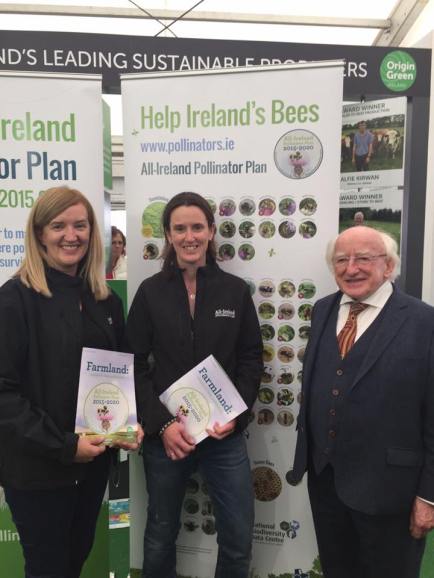By Jane Stout
This year, for the first time, I attended the National Ploughing Championships in Tullamore, Co. Offaly. This is an annual event, showcasing everything agricultural, and a big deal in rural Ireland. Over the three days, 300,000 people don wellies and descend on a field in the midlands. It has been dubbed the “Glastonbury for farmers” and involves hundreds of stalls and events, as well of course as ploughing competitions.
But this year, I wasn’t there for the ploughing. I was there for the pollinators. We were launching the All-Ireland Pollinator Plan Farmland Guidelines.

These guidelines detail five evidence-based actions to help make farmland more pollinator friendly. These actions are:
Although these five actions may seem simplistic, if farmers embrace these actions, we have the chance to reduce pollinator loss across Ireland’s countryside. The guidelines were developed in collaboration with Bord Bia over two years, incorporating evidence from scientific studies both in Ireland and elsewhere, as well as engaging in extensive consultation with farmers, advisors, farming groups and local communities.
Many people who visited us in the Bord Bia Origin Green stand for the launch were amazed that we have 98 species of bee in Ireland, and that only one produces honey. Many were genuinely concerned about their decline and we heard from lots of people who were already farming in nature-friendly ways.

Although most of Irish agriculture is pasture-based, and not currently reliant on insect-pollination services, we hope that Irish farmers will take action to support bees and other pollinators. Their motivation may be a desire to maintain our diverse natural heritage, or they may see that these actions will benefit Irish farmers in a wider sense by reinforcing Ireland’s green image in premium markets. In addition, there are other benefits such as supporting natural pest control and protecting watercourses, keeping farming options open for future generations, and, in a lot of cases, saving farmers time and money.